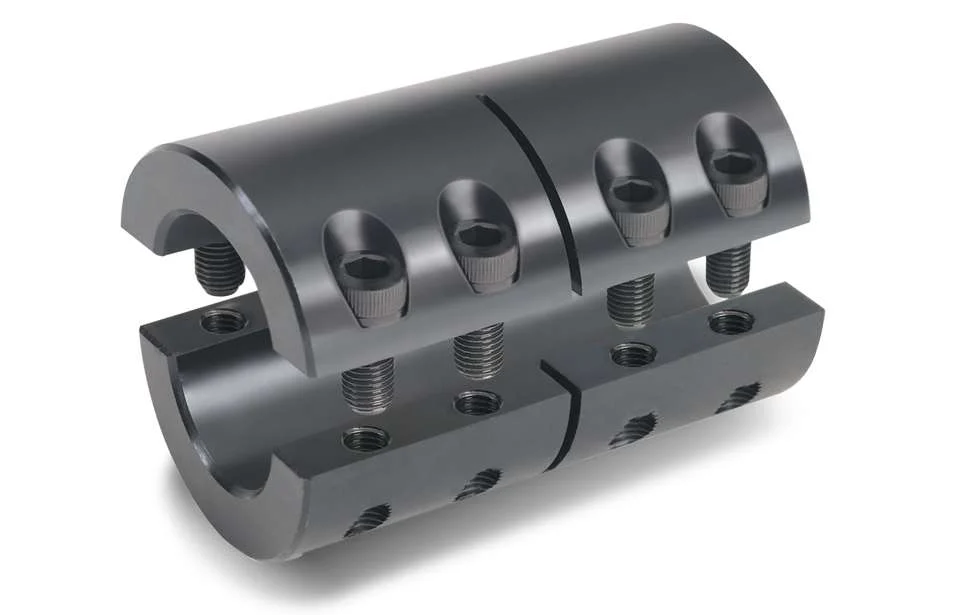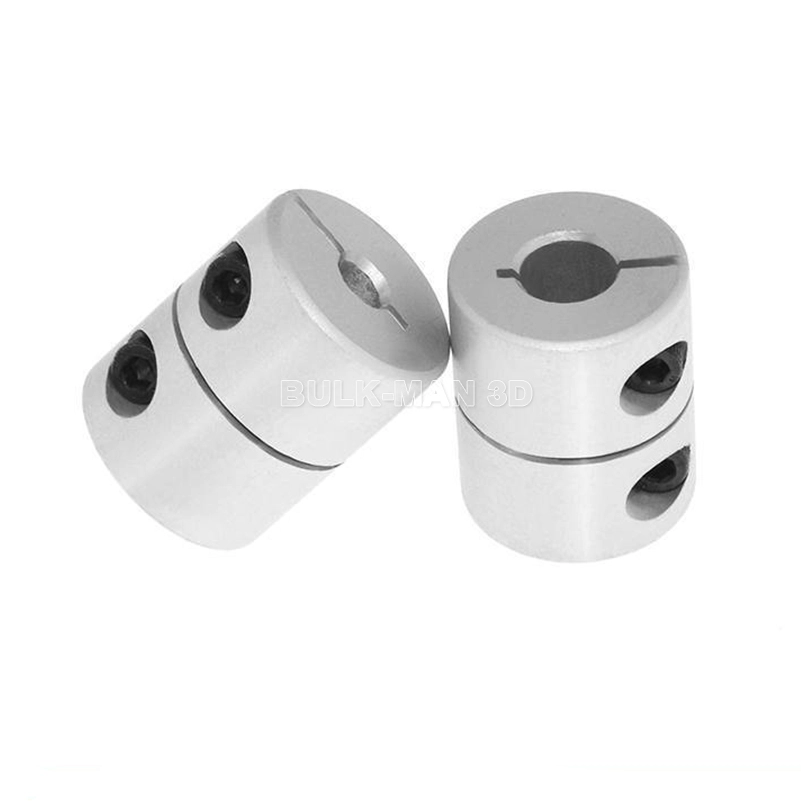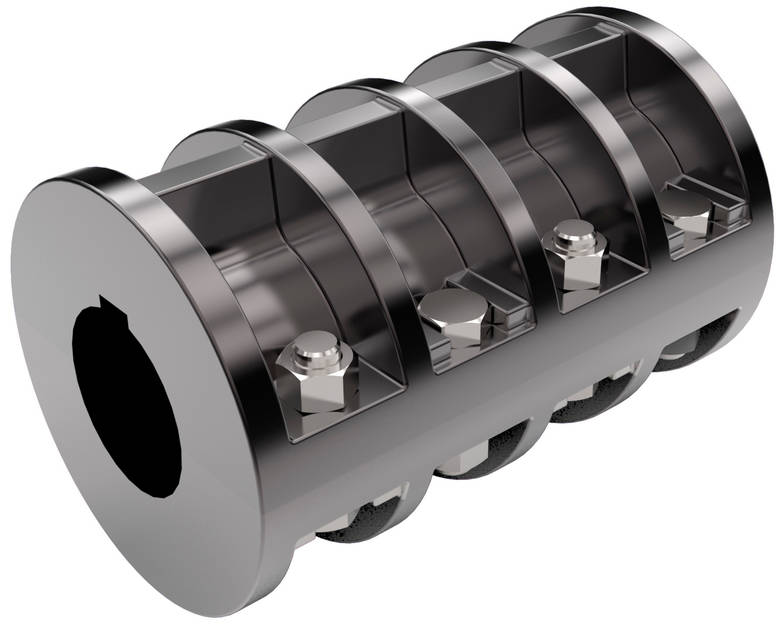Product Description
Flender Couplings Highly Flexible Jaw Torsionally Rigid Hydrodynamic Railway Backlash-Free Shaft Gear Universal Joint Rigid Coupling N-Eupex Elastomer
FLEXIBLE COUPLINGS
Elastic CHINAMFG couplings are mateable and easy to assemble. The elastomer element compensates for shaft misalignment and absorbs impacts from the motor or work machines.
TORSIONALLY RIGID COUPLINGS
Our compact steel couplings provide highly precise transmission of high torques especially under harsh operating conditions and at extreme temperatures.
HYDRODYNAMIC COUPLINGS
Smooth start, overload protection, torsional vibration damping – FLUDEX fluid couplings enable torque-limited start-up and have very low slippage at nominal loads.
RAILWAY COUPLINGS
Whether between motor and gear unit or between gear unit and axle – CHINAMFG rail couplings have proven themselves thousands of times in virtually every kind of rail vehicle worldwide.
HIGHLY FLEXIBLE COUPLINGS
Highly elastic CHINAMFG couplings are well-suited to connect asymmetrically operating machines. They are used preferably in periodically stimulated systems.
BACKLASH-FREE COUPLINGS
Our couplings serve as a modular interface between motor and work machine to ensure reliable and backlash-free power transmission in servo- and positioning drives.
COUPLINGS
FLEXIBLE COUPLINGS
Elastic CHINAMFG couplings are mateable and easy to assemble. The elastomer element compensates for shaft misalignment and absorbs impacts from the motor or work machines.
N-EUPEX PIN COUPLING
- Damping shaft coupling that can be used universally to compensate for shaft misalignment
- Nominal torque range from TKN = 12 Nm up to 85,000 Nm with 23 sizes
- Temperature range from -50 °C to +100 °C
N-EUPEX DS PIN COUPLING
- Damping shaft coupling that can be used universally to compensate for shaft misalignments
- Nominal torque range from TKN = 60 Nm up to 21,200 Nm with 19 sizes
- Temperature range: from -50 °C to +100 °C
RUPEX PIN AND BUSH COUPLING
- Damping, fail-safe pin and bush coupling for medium and higher torques
- Nominal torque range from TKN = 200 Nm up to 1,690,000 Nm with 26 sizes
- Temperature range: from -50 °C to +100 °C
AIQ DETECT
- Continuous wear monitoring for N-EUPEX and RUPEX couplings including speed measurement and direction of rotation detection
- Can be used on N-EUPEX A, B, BIC and H, size 80 to 710 and RUPEX RWN and RWS, size 105 to 2000
- Temperature range: from -40 °C to 75 °C, IP 67, CE
N-BIPEX CLAW COUPLING
- Damping shaft coupling that can be used universally to compensate for shaft misalignments
- Nominal torque range from TKN = 12 Nm up to 4,650 Nm with 10 sizes
- Temperature range: from – 50 °C to +100 °C
COUPLINGS
TORSIONALLY RIGID COUPLINGS
Our compact steel couplings provide highly precise transmission of high torques especially under harsh operating conditions and at extreme temperatures.
ZAPEX ZW GEAR COUPLING
- Double-jointed gear coupling
- Nominal torque range from TKN = 1,300 Nm up to 7,200,000 Nm with 31 sizes
- Temperature range: from -20 °C to +80 °C
ZAPEX ZN GEAR COUPLING
- Double-jointed gear coupling
- Nominal torque range from TKN = 1,571 Nm up to 162,500 Nm with 12 sizes
- Temperature range: from -20 °C to +80 °C
N-ARPEX ALL-STEEL COUPLING
- Backlash-free, torsionally rigid all-steel multi-disk coupling
- Nominal torque range from TKN = 350 Nm to 2,000,000 Nm
- Temperature range: from -50 °C to +280 °C
ARPEX ART TURBO COUPLING
- Torsionally rigid, backlash-free, all-steel multiple-disk coupling for high-speed applications
- Nominal torque range from TKN = 1,000 Nm up to 588,500 Nm with 16 sizes
- Temperature range: from -40 °C to +280 °C
SOFT AND SAFE
Hydrodynamic fluid coupling
Nominal output from 1.2 kW up to 2,500 kW with 15 sizes
Temperature range: from -40 °C to +50 °C
Especially within tough applications, drive components and processing machines are subject to extreme loads. FLUDEX couplings limit start and maximum torque within the drive train and serve as starting aids for the motor and as overload protection in the case of an incident. They also provide damping and separation of rotary oscillation, thereby reducing restoring forces to a minimum.
Fluid couplings operate according to the Föttinger principle. The coupling parts on the input and output side are not mechanically connected and are therefore wear-free. The torque is transmitted by the fluid movement in the coupling, accelerated by the radial blades. Our film illustrates the Föttinger principle as well as the operating principle of the FLUDEX coupling.
COUPLINGS
HIGHLY FLEXIBLE COUPLINGS
Highly elastic CHINAMFG couplings are well-suited to connect asymmetrically operating machines. They are used preferably in periodically stimulated systems.
ELPEX FLEXIBLE RING COUPLING
- Highly flexible, backlash-free tire coupling
- Nominal torque range from TKN = 1,600 Nm up to 90,000 Nm with 9 sizes
- Temperature range: from -40 °C to +80 °C
ELPEX-B RUBBER TIRE COUPLING
- Highly flexible, backlash-free tire coupling
- Nominal torque range from TKN = 24 Nm up to 14,500 Nm with 15 sizes
- Temperature range: from -50 °C to +50 °C for natural rubber materials, from
-15 °C to +70 °C for chloroprene rubber
ELPEX-S RUBBER DISK COUPLING
- Highly flexible rubber disk coupling to connect machines with high torque fluctuations
- Nominal torque range from TKN = 330 Nm up to 63,000 Nm with 17 sizes
- Temperature range: from -40 °C to +120 °C
COUPLINGS
BACKLASH FREE COUPLINGS
Our couplings serve as a modular interface between motor and work machine to ensure reliable and backlash-free power transmission in servo- and positioning drives.
BIPEX-S
- Vibration-damping and electrically insulating claw coupling
- Nominal torque range from TKN = 0.5 Nm to 655 Nm with 10 sizes
- Temperature range: from -50 °C to +120 °C
SIPEX
- Backlash-free and torsion-resistant metal bellow coupling
- Nominal torque range from TKN = 0.1 Nm to 5,000 Nm with 20 sizes
- Temperature range: from -30 °C to +120 °C
Why an elastic coupling of Bestseal?
An elastic coupling from Bestseal is the result of decades of product development and innovation. With this, we assure you of a high-quality component with the highest possible reliability. We see ourselves as the reliable partner of anyone who wants to set things in motion.
More than 2,000 employees work passionately every day to provide you, the customer, with the best conceivable products. DIN ISO certifications are the best proof of this. A transparent and honest way of working lies at the basis of every customer relationship with us.
Would you like to learn more about our elastic couplings or answer an important product question?
Please contact our technical support department or sales department and let us inform you in detail about the various possibilities.
We will be happy to think along with you based on your wishes and make you a custom offer without any obligation.
we specialized in the development and production of sealing systems which were used in the Metallurgical,Electrical,Auto, Engineering machinery, Light industrial machinery and Electrical appliance manufacturing industries. BESEALS focus on customers’ needs,as a dependable partner and reliable supplier to help you resolve supply or technical problems ,and improve the performance of your equipments or your business. When you are facing emergency repairs situation or urgent orders,the highly responsive team of DLseals will offer you very short lead time. Beseals has a global sales network,and our seals have been sold to more than 100 countries or areas ,Such as America, England, Canada, Australia, Russian Federation ect .
FAQ
1. who are we? Are you trading company or manufacturer ?
We are manufacturer.We are based in HangZhou, China, start from 2571,sell to Domestic Market(33.00%),North America(15.00%),South America(10.00%),Western Europe(8.00%),Eastern Europe(6.00%),Souther Europe(6.00%),Southeast Asia(5.00%),Mid East(5.00%),Northern Europe(5.00%),Oceania(2.00%),South Asia(2.00%),Africa(00.00%),Eastern Asia(00.00%),Central America(00.00%). There are total about 51-100 people in our office.
2. how can we guarantee quality?
Always a pre-production sample before mass production; Always final Inspection before shipment;
3.what can you buy from us?
PTFE Seals/Oil Seals/O Rings/Rubber Seals/Plastic Seals/Mechanical Seal/O-RING/ RING Seals.
4. why should you buy from us not from other suppliers?
Beseals is a professional manufacturer of seals .Our company specializes in the production of PU, PTFE, rubber and metal sealing components
5. How long is your delivery time?
Generally it is 5-10 days if the goods are in stock. or it is 15-20 days if the goods are not in stock, it is according to quantity.
6.Do you provide samples ?
is it free or extra ? Yes, we could offer the sample for free charge but you need to pay the cost of freight.
7. what services can we provide?
Accepted Delivery Terms: FOB,CFR,CIF,EXW,FAS,CIP,FCA,Express Delivery;
Accepted Payment Currency:USD,EUR,JPY,CAD,HKD,CNY;
Accepted Payment Type: T/T,L/C,D/P D/A,MoneyGram,PayPal,Western Union,Escrow; Language
Spoken:English,Chinese,Japanese
For more information, please contact us. We look CHINAMFG to your arrival
/* January 22, 2571 19:08:37 */!function(){function s(e,r){var a,o={};try{e&&e.split(“,”).forEach(function(e,t){e&&(a=e.match(/(.*?):(.*)$/))&&1

How Do Rigid Couplings Compare to Other Types of Couplings in Terms of Performance?
Rigid couplings offer specific advantages and disadvantages compared to other types of couplings, and their performance depends on the requirements of the application:
1. Performance: Rigid couplings provide excellent torque transmission capabilities and are best suited for applications that demand precise and efficient power transfer. They have minimal backlash and high torsional stiffness, resulting in accurate motion control.
2. Misalignment Tolerance: Rigid couplings cannot tolerate misalignment between shafts. They require precise shaft alignment during installation, which can be time-consuming and may result in increased downtime during maintenance or repairs.
3. Vibration Damping: Rigid couplings offer no damping of vibrations, which means they may not be suitable for systems that require vibration isolation or shock absorption.
4. Maintenance: Rigid couplings are generally low maintenance since they have no moving parts or flexible elements that can wear out over time. Once properly installed, they can provide reliable performance for extended periods.
5. Space Requirements: Rigid couplings are compact and do not add much length to the shaft, making them suitable for applications with limited space.
6. Cost: Rigid couplings are usually more economical compared to some advanced and specialized coupling types. Their simpler design and lower manufacturing costs contribute to their affordability.
7. Application: Rigid couplings are commonly used in applications where shafts are precisely aligned and no misalignment compensation is necessary. They are prevalent in precision machinery, robotics, and applications that require accurate motion control.
In contrast, flexible couplings, such as elastomeric, jaw, or beam couplings, are designed to accommodate misalignment, dampen vibrations, and provide some degree of shock absorption. Their performance is ideal for systems where shafts may experience misalignment due to thermal expansion, shaft deflection, or dynamic loads.
In summary, rigid couplings excel in applications that demand precise alignment and high torque transmission, but they may not be suitable for systems that require misalignment compensation or vibration damping.

Factors to Consider When Choosing a Rigid Coupling for a Specific System
Choosing the right rigid coupling for a specific system is crucial to ensure proper functionality and reliable performance. Several factors should be considered when making this decision:
1. Shaft Size and Compatibility: The most fundamental factor is ensuring that the rigid coupling is compatible with the shaft sizes of the connected components. The coupling should have the appropriate bore size and keyway dimensions to fit securely onto the shafts.
2. Operating Torque: Consider the torque requirements of the application. The rigid coupling should have a torque rating that exceeds the maximum torque expected during operation to prevent failures and ensure safety.
3. Speed: Determine the rotational speed (RPM) of the connected shafts. Rigid couplings have maximum RPM limits, and the selected coupling should be capable of handling the system’s operating speed.
4. Misalignment Tolerance: Assess the potential misalignment between the shafts. Rigid couplings provide no flexibility, so the system must have minimal misalignment to prevent excessive forces on the components.
5. Temperature and Environment: Consider the operating temperature range and the environment where the coupling will be used. Ensure the chosen material can withstand the temperature and any corrosive or harsh conditions present.
6. Space Limitations: Evaluate the available space for the coupling. Rigid couplings have a compact design, but ensure that there is enough clearance for installation and maintenance.
7. Backlash and Torsional Stiffness: In some precision systems, backlash must be minimized to maintain accurate positioning. Additionally, the torsional stiffness of the coupling can impact system response and stability.
8. Keyway or Keyless Design: Decide between a coupling with a keyway or a keyless design based on the specific application requirements and ease of installation.
9. Material Selection: Consider the material properties of the rigid coupling. Common materials include steel, stainless steel, and aluminum, each with its own advantages and limitations.
10. Maintenance: Determine the maintenance requirements of the coupling. Some couplings may need periodic lubrication or inspections, while others may be maintenance-free.
11. Cost: While cost should not be the sole consideration, it is essential to evaluate the cost-effectiveness of the coupling, taking into account its performance and longevity.
By carefully considering these factors, you can select the most suitable rigid coupling for your specific system, ensuring optimal performance, and longevity of your mechanical setup.

Materials Used in Manufacturing Rigid Couplings:
Rigid couplings are designed to provide a strong and durable connection between two shafts, and they are commonly made from a variety of materials to suit different applications. The choice of material depends on factors such as the application’s environment, load capacity, and cost considerations. Some common materials used in manufacturing rigid couplings include:
- 1. Steel: Steel is one of the most widely used materials for rigid couplings. It offers excellent strength, durability, and resistance to wear. Steel couplings are suitable for a wide range of applications, including industrial machinery, automotive systems, and power transmission.
- 2. Stainless Steel: Stainless steel couplings are used in applications where corrosion resistance is crucial. They are well-suited for environments with high humidity, moisture, or exposure to chemicals. Stainless steel couplings are commonly used in food processing, pharmaceuticals, marine, and outdoor applications.
- 3. Aluminum: Aluminum couplings are known for their lightweight and corrosion-resistant properties. They are often used in applications where weight reduction is essential, such as aerospace and automotive industries.
- 4. Brass: Brass couplings offer good corrosion resistance and are commonly used in plumbing and water-related applications.
- 5. Cast Iron: Cast iron couplings provide high strength and durability, making them suitable for heavy-duty industrial applications and machinery.
- 6. Bronze: Bronze couplings are known for their excellent wear resistance and are often used in applications involving heavy loads and low speeds.
- 7. Plastics: Some rigid couplings are made from various plastics, such as nylon or Delrin. Plastic couplings are lightweight, non-conductive, and suitable for applications where electrical insulation is required.
It’s essential to consider the specific requirements of the application, including factors like load capacity, operating environment, and cost, when choosing the appropriate material for a rigid coupling. The right material selection ensures that the coupling can withstand the forces and conditions it will encounter, resulting in a reliable and long-lasting connection between the shafts.


editor by CX 2024-03-26
by
Tags:
Leave a Reply